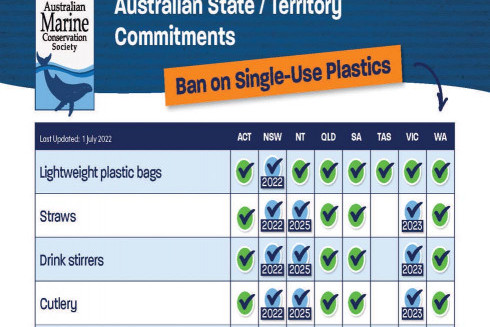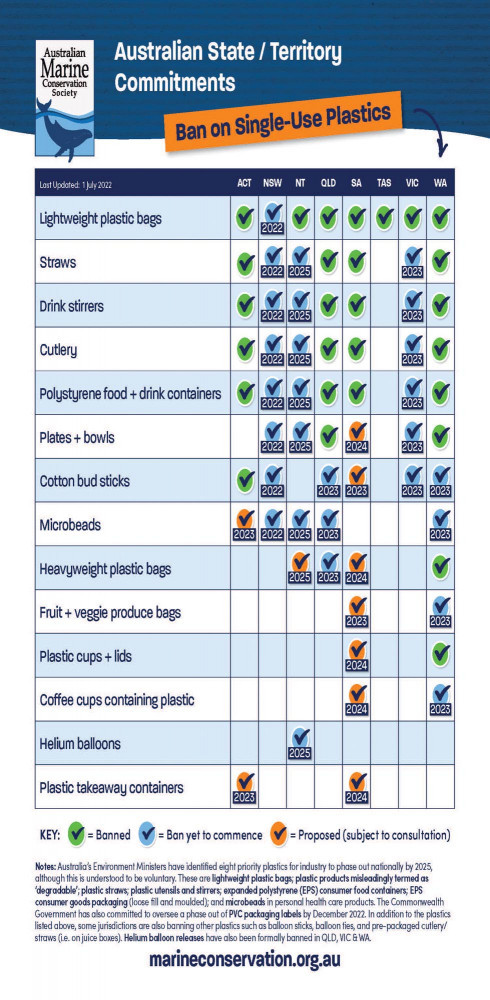General News
8 July, 2022
Queensland To Ban More Plastics For Wildlife
THE Queensland Government is moving to ban plastic microbeads, cotton bud sticks, loose fill polystyrene packaging, and the mass release of lighter-than-air balloons, hailing it as another step forward in cleaning up our oceans.

The Government also said they would introduce a reusability standard for carry bags, which will, in effect, ban disposable heavyweight plastic bags.
The ‘second wave’ of plastics to be banned will be phased out from September 1, 2023.
Single-use plastic straws, drink stirrers, plates, bowls and cutlery are already banned in the state after the Government enacted laws last year on September 1, 2021.
The Australian Marine Conservation Society (AMCS) welcomed the Queensland Government’s action.
Plastics spokesperson for the AMCS, Shane Cucow, said the organisation welcomed the news as it would prevent many wildlife deaths.
“We’re very pleased to see the Queensland Government acting to eliminate more hard-to-recycle plastics, reducing the plastic that is choking our oceans,” Mr Cucow said.
“Whether thick or thin, plastic bags, in particular, are some of the most lethal plastics for wildlife such as turtles, who mistake them for food.
“With balloons, one of the biggest plastic killers of seabirds, a formal ban on the mass release of lighter-than-air balloons is also great news for our wildlife.
“The other plastics banned represent some of the most notable sources of small microplastics, with cotton bud sticks and expanded polystyrene commonly found in ocean cleanup surveys.”
While AMCS welcomed the news, Mr Cucow stressed that more needed to be done to reduce ocean plastic pollution.
“We are disappointed to see that action on plastic cups, coffee cups, and their lids has been delayed, as well as oxo-degradable plastics,” he said.
“Australians generate around 22,500 tonnes of hot cup waste annually, equating to an average of 72.7 cups per person. With most of it difficult to recycle, a lot of plastic pollutes our natural environment.
“Oxo-degradable plastics are not biodegradable. Instead, they add chemicals that cause them to fragment, creating micro plastics that persist in the marine environment.”
While Queensland, South Australia and the ACT move forward with the second wave of their plastics bans, other jurisdictions have yet to implement a ban on single-use plastics.
“With earth-friendly alternatives now widely available, it’s time to ditch killer plastics throughout all of Australia,” Mr Cucow said.



